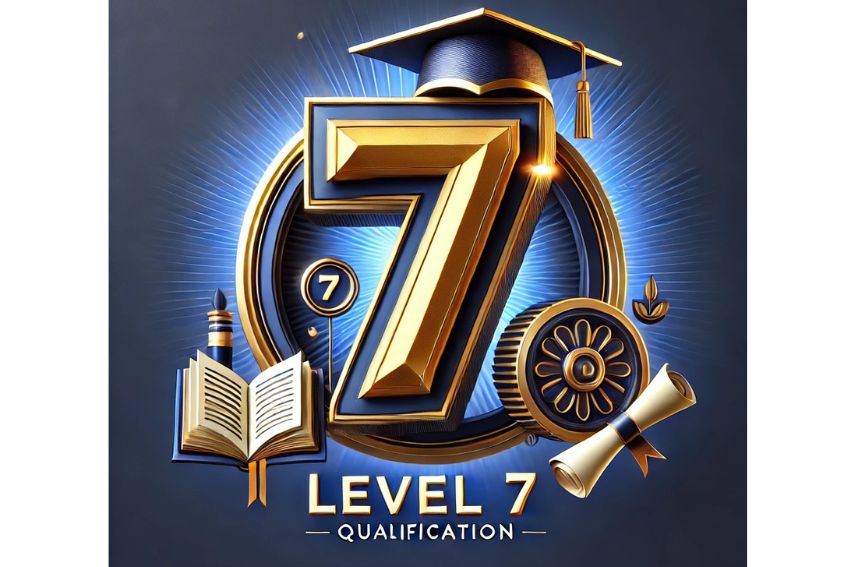Didn’t get the A Level grades you were hoping for? Or maybe you missed your exams altogether? You’re not alone and the good news is, yes, you can resit A Levels privately.
Resitting privately means you don’t need to return to school or college. Instead, you register as a private candidate and take the exams independently. This option gives you the freedom to study in a way that works best for you, whether that’s self-study, online courses, or getting help from a tutor.
This blog is for anyone looking to give A Levels another go. Whether you want to improve your grades, missed a university offer, changed your direction, resitting privately gives you a flexible and practical way forward. We’ll guide you through the whole process so you know exactly what to expect and how to make it work.
Reasons Why Students Resit A Levels Privately
There are many reasons why students choose to resit A Levels privately, and it’s more common than you might think. For some, it’s about getting another chance. For others, it’s about finding a path that suits them better.
One of the biggest reasons is missing out on a university offer. If your results didn’t meet the conditions of your UCAS application, resitting privately gives you time to focus and try again without going back to school full time. Others might need higher grades to access a specific career or apprenticeship. Some jobs and training routes have minimum A Level requirements, and resitting privately can help you reach them, similar to how GCSE resits can open doors for further education.
Some students simply want to improve their grades for personal or professional growth. Maybe you didn’t perform your best the first time around, or now you’re more motivated and ready to give it another go. In some cases, students change direction. If you’ve chosen a new university course or career path, you might need different A Level subjects or better results in a subject you already took.
And of course, life can get in the way. If you dealt with health problems, stress, or personal issues during your exams, resitting privately gives you the flexibility to work at your own pace.

How to Register for A Level Resits as a Private Candidate
Once you’ve decided to resit your A Levels privately, the next step is registering for the exams. Don’t worry, it might sound complicated, but the process is straightforward when you break it down.
Step 1: Choose Which Subjects to Resit
Start by deciding which A Level subjects you want to retake. You don’t need to resit everything, many students focus on just one or two subjects they want to improve.
Step 2: Select Your Exam Board
Next, find out which exam board you originally took, like AQA, Edexcel, or OCR. It’s usually best to stick with the same one, as the content and exam style will be more familiar. If you’re unsure, your old school or college might be able to tell you.
Step 3: Find an Exam Centre That Accepts Private Candidates
You’ll need to book your exams through a centre that allows private candidates. Not all schools or colleges offer this, but many independent exam centres do. You can use the JCQ directory to find one near you. It’s a good idea to contact the centre early, they can explain what they offer and how much it will cost.
Step 4: Register and Pay The Exam Fees
Once you’ve chosen your subjects, exam board, and centre, you’ll need to fill out a registration form and pay the fees. Prices can vary depending on the subject and centre, so make sure to ask for a breakdown. Some centres also charge extra for science practicals or coursework-based subjects.
Step 5: Know Your Exam Dates
Most A Level resits take place during the main summer exam season – May and June. Some subjects and boards may offer an October resit option, but this is less common, so double-check with your centre.
Registering early gives you more time to prepare and avoids last-minute stress. Once you’re booked in, you can focus on studying and making the most of your second chance.
How Much Does It Cost to Resit A Levels Privately?
If you’re planning to resit A Levels privately, it’s important to understand the costs involved so you can plan ahead. While prices can vary depending on where and how you choose to study, here’s a general breakdown of what to expect.
Exam Entry Fees
This is the main cost. Depending on the exam board and subject, you can expect to pay between £65 and £400 per subject. Some subjects, like sciences with practical components may cost more, especially if your exam centre needs to arrange additional assessments.
Textbooks and revision materials
If you’re studying independently, you’ll need to get your own study resources. This might include textbooks, revision guides, or online notes. Prices vary, but budgeting around £30 to £60 per subject is a good starting point.

Online course fees (optional)
Some students choose to enrol in online A Level courses to help structure their revision. These can range from £200 to £1,000+, depending on the provider and whether they include tutor support or mock exams.
Private tutoring (optional)
If you want more personalised help, private tutoring is another option. Some students find it helpful for understanding tricky topics or improving essay technique. Tutors usually charge £20 to £60 per hour, depending on experience.
Since you’ll likely be combining a few of these costs – exam fees, resources, and maybe some support, it’s a good idea to start budgeting early.
Can I Improve My A Level Grades the Second Time?
Yes, you absolutely can. Many students who resit A Levels privately see their grades go up, often by at least one full grade. With more time to revise, better resources, and a clearer understanding of the exam structure, it’s definitely possible to do better the second time around.
When you resit, only your new result counts. It won’t be averaged with your previous grade, so if you get a higher mark, that’s the one that will appear on your certificate and be used for future applications.
If you’re planning to reapply to university through UCAS, it’s worth knowing how predicted grades work for private candidates. Since you’re not in a school setting, you’ll either need a tutor, course provider, or exam centre to provide a predicted grade or apply without one and explain your situation in your personal statement.
How to Study and Succeed in Your A Level Resits
When you’re resitting A Levels privately, choosing how to study is a big part of your success. The great thing is, there’s no one-size-fits-all approach, you can choose what works best for you and even mix different methods.
Many students go for self-study. Using textbooks, revision guides, and past papers gives you full control over your schedule and pace. It’s cost-effective too, but you’ll need to stay focused and organised.
You can also consider online A Level courses. These come with structured lessons, mock exams, and clear learning plans. They’re useful if you want more direction while still studying from home. Some courses offer extra support, while others let you work independently.
Each method has its pros and cons. Self-study is flexible and budget-friendly, while online courses offer more structure but can be more expensive. Often, a combination of both works best – using online courses for structure and past papers for practise. Here are a few tips to help you stay on track:
- Make a realistic study plan that fits around your routine
- Stick to the exam board specification so you revise what matters
- Practise with past papers and mark schemes to understand how exams work
- Set small, achievable goals to keep yourself motivated
- Don’t be afraid to ask for help if you’re stuck or unsure
Conclusion
If your A Level results didn’t go as planned the first time, that’s okay. Needing a second try doesn’t mean you’ve failed, it means you’re growing, learning, and moving forward despite the setback. Setbacks don’t define you, and every challenge can be a chance to build resilience and take control of your future. Resitting A Levels privately gives you the flexibility to study in a way that suits you. You can go at your own pace, focus on the subjects that matter most, and take control of your own learning.
Remember, you don’t have to figure it all out on your own. If you’re feeling stuck or unsure where to start, online A Level tutors can make a big difference. They can help explain difficult topics, keep you on track, and give you that extra support when you need it the most. Good luck!
You Might Be Interested In
Resitting A Levels: Your Ultimate Guide to Retaking Exams Successfully
Comprehensive Guide to A Level Exams – Everything You Need to Know
FAQ’s
Can I resit just one A Level subject?
Yes, you can. You don’t have to retake all your A Levels, just the subject you want to improve. Many students resit one or two subjects to improve their grades.
Can I use my old coursework again?
It depends on the exam board and subject. Some boards let you carry forward your previous coursework marks, while others may require you to submit new work. It’s best to check with the exam board or your chosen exam centre.
Will universities know I resat A Levels?
Universities can see if you’ve resat an A Level, especially if you’re applying through UCAS. But resits are very common, and most universities focus more on your final grades and overall application.
Can I resit A Levels while working?
Yes, and many people do. One of the benefits of resitting privately is the flexibility to study around your schedule. Just make sure to give yourself enough time to revise and prepare for the exams.








